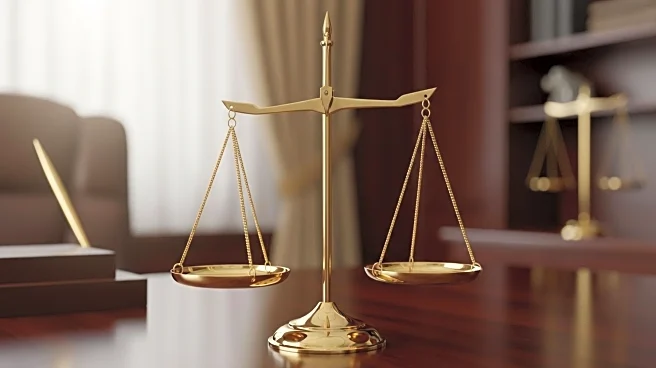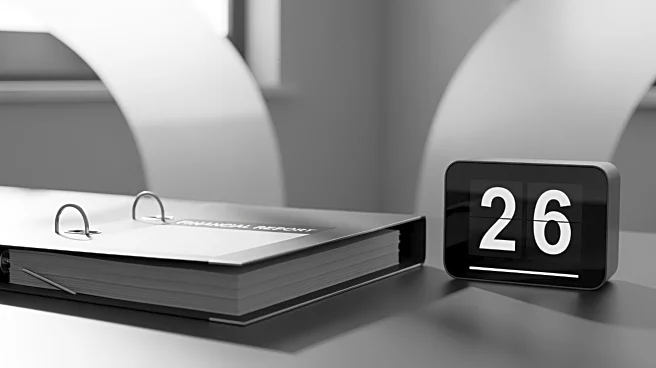What's Happening?
Justice Clarence Thomas has called for a more critical approach to Supreme Court precedents, suggesting that settled cases should not be treated as untouchable. During a speech at Catholic University’s Columbus School of Law, Thomas used a metaphor comparing the Court to a train, questioning the wisdom of following precedents without scrutiny. He argued that some precedents might be based on flawed reasoning and should be revisited. This comes as the Supreme Court, with a conservative majority, prepares to consider cases that could challenge significant past decisions, including the landmark ruling on same-sex marriage, Obergefell v. Hodges.
Why It's Important?
Thomas's remarks highlight a potential shift in how the Supreme Court may handle established legal precedents, which could have far-reaching implications for U.S. law and society. By questioning the principle of stare decisis, Thomas suggests a willingness to overturn or modify past decisions, potentially affecting rights and regulations that have been in place for decades. This approach could lead to significant legal and social changes, particularly in areas like marriage equality, voting rights, and reproductive rights. The conservative majority on the Court may be more inclined to revisit contentious issues, impacting millions of Americans.
What's Next?
As the Supreme Court begins its new term, it will face decisions on whether to hear cases that could challenge existing precedents. The outcomes of these cases could redefine legal standards and societal norms. Stakeholders, including political leaders, advocacy groups, and the public, will likely engage in intense debate over the Court's direction. The potential for significant legal shifts may prompt legislative responses or further judicial challenges, shaping the future landscape of American law and civil rights.
Beyond the Headlines
Thomas's comments also raise questions about the role of the judiciary in balancing respect for historical rulings with the need for legal evolution. The ethical and cultural implications of revisiting established precedents could lead to broader discussions about judicial philosophy and the Court's role in reflecting or shaping societal values. This debate may influence public perception of the judiciary and its legitimacy, especially as contentious issues come to the forefront.









